#Yussupov
Text
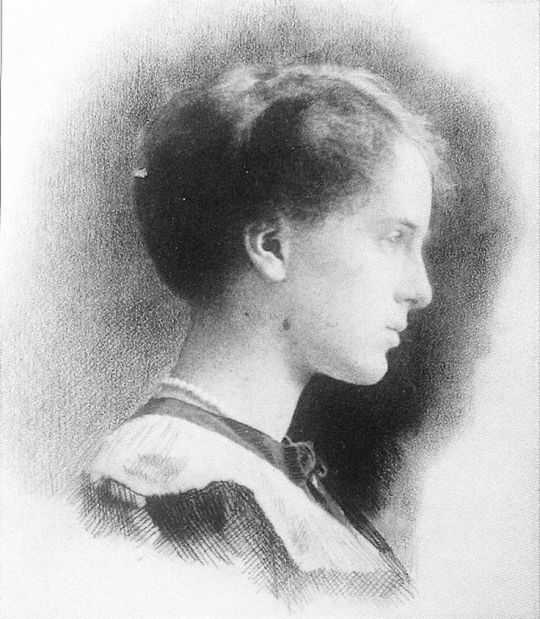
"I forgot to say that at Torby (home of Countess Sophie Torby) I saw the last photograph of Ksenia Alexandrovna's daughter. How beautiful she is..." Letter from Prince Felix Youssoupoff to his mother, Zenaida in October 1910.
#Prince Felix Yusupov#Prince Felix Youssoupoff#princess irina alexandrovna#Princess Irina Youssoupoff#Romanoff#Romanov#Yusupov#Yussupov#Youssoupoff#Youssoupov
55 notes
·
View notes
Photo
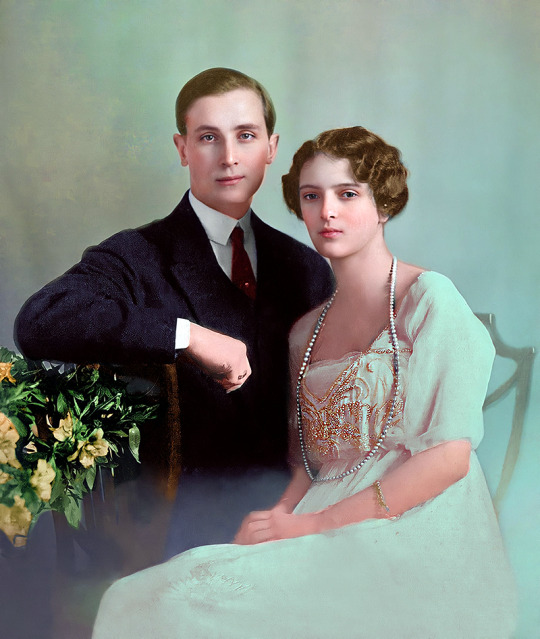
Prince Felix Yusupov with his wife Princess Irina Alexandrovna of Russia on the occasion of their engagement, 1913.
Felix Yusupov is best known for his part in murder of Grigori Rasputin.
#Prince Felix Yusupov#Princess Irina Alexandrovna of Russia#Princess Irina Yusupov#Prince Felix Yussupov#Princess Irina Yussupov#Romanovs#imperial russia#imperial family#1913#1910s#colored#colored photography#b&w picture coloring#digital coloring#history colored
53 notes
·
View notes
Text
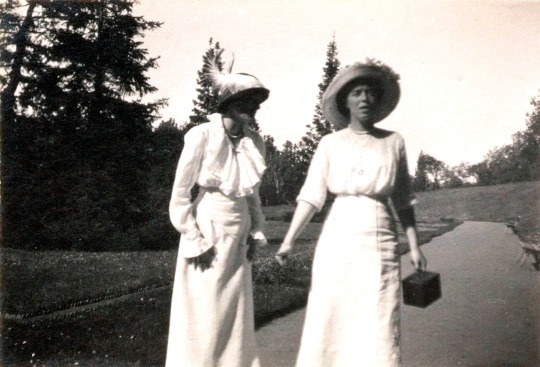
Princess Irina Alexandrovna with aunt, Grand Duchess Olga Alexandrovna; 1913.
(source: 📷)
#princess irina#grand duchess olga alexandrovna#irina alexandrovna#olga alexandrovna#my own#grand duchess#princess#the yussupovs
31 notes
·
View notes
Text
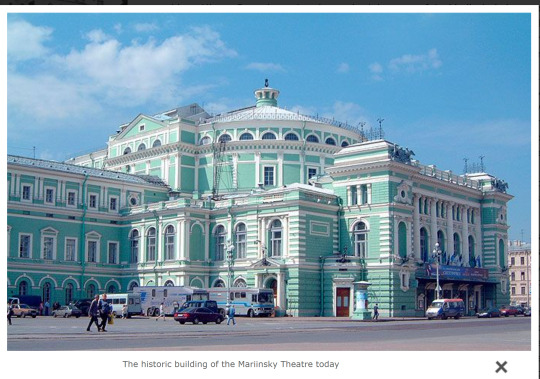
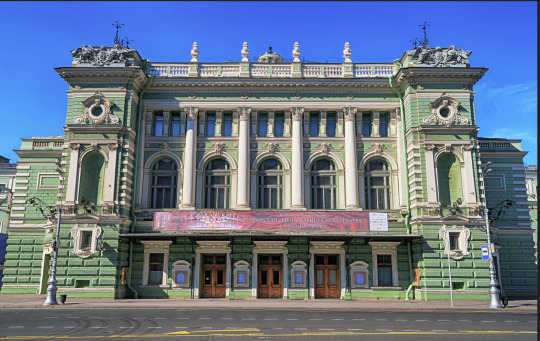
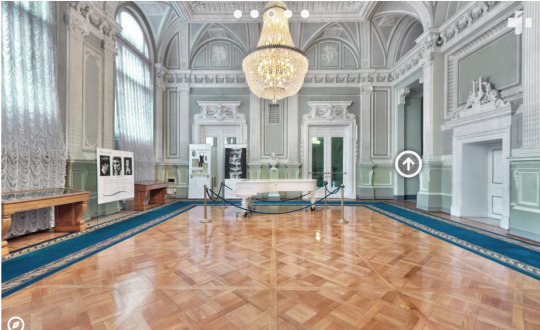


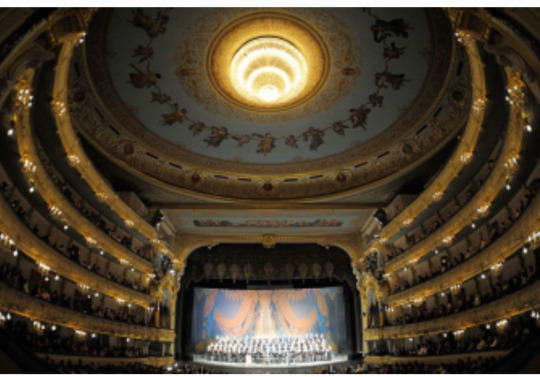

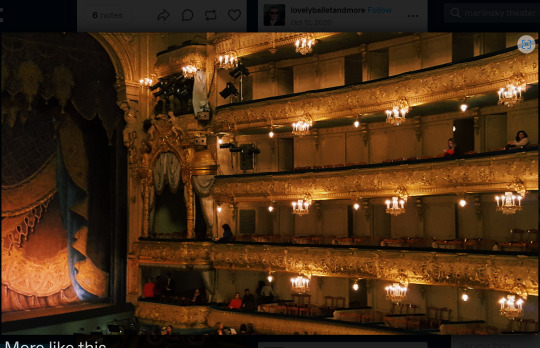

Photographs: 1. The exterior of the Mariinsky as it looks today; 2. A view of the facade; 3. The lobby; 4. A view of the orchestra and of the "Royal Box" which was in fact used by the Tsar only when there was visiting Royalty from other countries, etc. in attendance; 5. The "Royal Box" as seen from the stage; 6. The stage as seen from the "Royal Box" (notice the decorated ceiling and lamp); 7. Another view of the stage. 8. Notice the box next to the stage; that was the Tsar's real box - that was where he sat when he attended a performance with his family; 9. Another view of the Tsar's box next to the stage
"The Season" at Saint Petersburg, the Tsars and the Mariinsky Theater
Those interested in Romanov history and how the members of the dynasty lived know that "The Season," the ballet, opera, balls, etc., were an important part of their personal and political lives. So important, that one of the many factors contributing to the fall of Nicholas II might have been his withdrawal from the social activities "The Season" entailed.
"The Season" in St. Petersburg began in the last two weeks of September. The nobility returned from their vacation in their country dachas at the end of October, at the same time as the Tsar and his family. The most brilliant part of the Season took place during this time, and long-term visitors reported the city looked most brilliant and glorious during this exciting time of gala court balls, festivals, and masquerades.
All of this revolved around the person on the Tsar, who was the most important host, guest, and critic. Nicholas I attended the theater almost every day during the Season. This pattern continued until the reign of Alexander III, when he began to cut back his attendance. His son Nicholas loved the theater (he wrote in his diary that nothing moved him more than music), and as Tsarevich, he attended operas, ballets, plays, and concerts as often as he could. After he married, his wife's frequent pregnancies and illnesses increasingly cut into his attendance. In 1900 the Imperial couple was still attending concerts and performances in the city. Still, they were becoming fewer and fewer each year.
At the center of much of Saint Petersburg's entertainment life was the famous Mariinsky Theatre. Today, it still plays a significant role in Russia's cultural life. The Mariinsky underwent several rebuildings over the years. The luxurious building went up in 1860. In 1883 it was extensively remodeled, and more decoration was added to the facade. The Mariinsky was the center of the famous Imperial Ballet and Opera, home to many of the most famous performing artists of the last 100 years.
Many of the names of these stars are legendary - Nijinsky, Karsavina, Pavlova, Kschessinska, Chaliapin, Petipa, and many others. The artists of the Imperial theatre and the upkeep of its facilities were the responsibility of the Tsar, and all of these costs came out of the annual revenues of the Imperial estates.
Tickets to the Mariinsky were hard to get. Most of them were pre-assigned to subscribers who held their seats for life; when Prince Felix Yussupov married the Tsar's niece, Irina, the Tsar asked him what he wanted as a wedding present. Yussupov, a fan of the performing arts, asked for the right to use the Tsar's box at the theater when he was away - which was a gift beyond price. His request surprised and amused the Tsar, who granted it. The Tsar's private box was on the left-hand side of the Mariinsky stage. It had an incredibly intimate view of the stage, a dining room, and its own elegant bathroom. It also had a private entrance to the building and a staircase.
The Mariinsky Theatre invariably began the Season with A Life for the Tsar, a patriotic opera. The ballet opened on the first Sunday of September, the company having assembled two weeks before.
The competition for seats and the right to subscribe proved the interest it aroused. A petition to the Chancery of the Imperial Theatres had to be filed to obtain a seat; the chance of success was so small that advertisements constantly offered big premiums to the original holders of the stalls. Fathers handed their seats down to their sons. There may have been personal motives in the attachment of some to the ballet, but the cult of this delicate art was always uppermost. (gcl)
12 notes
·
View notes
Text
youtube
I mean, I would say, "Another day, another interview with no hope whatsoever of English subtitles," but that would be ungrateful.
Okay! The host is Margulan Seisembayev, and he apparently does these roundtables fairly often. Participants are ZaQ; Arman Yussupov, who founded an online training center of some sort; Assel Sadvakassova, an actress and writer (I think?) who also sat down with our favorite YouTube-based one-on-one interviewer, Timur Balymbetov*; and Askar Ilyassov, an actor.
Description:
Each of us wants to be happy, but we all understand happiness differently. In this episode of the Gemba podcast, we talked about what prevents people from being happy and how to achieve balance in life. What is the phenomenon of happiness and how not to lose it? To find out the answers to these questions, watch the episode to the end. I'm sure you will find it interesting! Enjoy watching!
I probably would find it interesting. For now I'm stuck with remarking that Google's ability to render Russian into English has gotten smoother over time.
Translating the timestamps doesn't add a lot; there's apparently some discussion of power-pose theory, some of how reliance on smartphones affects our mental health, and some on the inner child, which may be relevant if you recall that those Gap teasers also had text about the inner child, I am not in a position to research how psychological concepts disseminate differently in different countries but maybe consideration of the inner child is trendy in Almaty right now?
At about 40:49 ZaQ goes into one of his trademark monologues, and I tried the trick I tried a couple months ago, of putting the auto-generated Russian subs into Google Translate. Obviously this is a machine translation of a machine transcription, and if you're feeling cranky about AI I don't recommend this, but the result felt very ZaQ-like: he basically talks about how there was no Kazakh rap when he was growing up, all he had were a couple cassette tapes his uncle would occasionally bring in from the city (I think "the city" refers to Semey), and yet he dreamed of becoming a rapper, focused his energy on becoming a rapper, and now he believes that all that dreaming and visualizing helped him get where he is now. "I constantly gave energy to my future self," says the translation of the transcription, which, again, feels like the kind of thing ZaQ, he who likes to philosophize about energy and ideas traveling like waves, would say.
* Balymbetov, bless him, conducts these one-on-one interviews in Kazakh (including with Bala, who might have been just as comfortable in Russian, maybe more so), so I can't try the transcription-generating trick. At one point I suggested to the @qpoptranslations team that we contact Balymbetov's staff and ask if they have written transcriptions, which would at least allow me to render an imperfect translation and do a summary like I did with the Zamandas interview. But they're understandably wary of picking up extra work, and I haven't summoned up the nerve, myself. If you know someone who knows someone, or know enough about Kazakh manners to tell me to whom to write and what to say to them, I will be in your debt.
1 note
·
View note
Photo
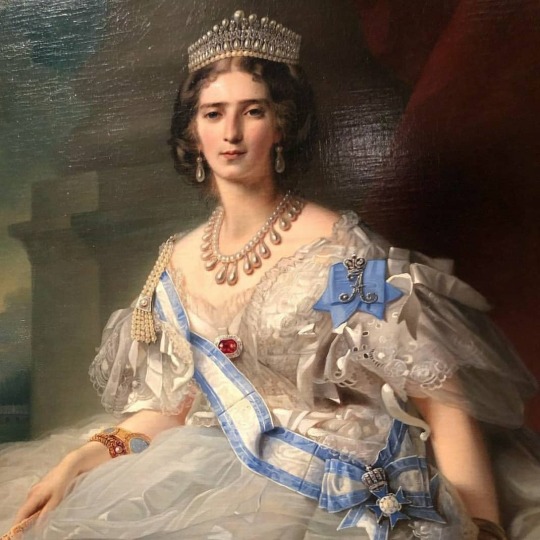
I saw this striking portrait of Princess Tatiana Yussupova at the Hermitage. Supposedly a copy of the original Winterhalter portrait. It features the infamously beautiful Princess with her impressive Yussupov Loverknot Diadem, a pearl épaulette and the family estate in Arkhangelskoe in the background. People were dazzled when the Princess appeared at a ball at the Winter Palace wearing her pearl parure. As we can see with a good reason to. The Loversknot design was very popular amongst Royalty and the Nobility of Europe and no less than five versions existed of which one is in possession of HM. The Yussupov's is designed with 19 perfect arches and knots and has pearls suspended from each arch and along the top. The pearl collection ( and the entire jewellery collection) of the Yussupovs was legendary which also included La Pelegrina Pearl. The Loversknot diadem didn't have a happy ending unfortunately. I was was found in the Yussupov Palace along with a big part of their collection and was most probably dismantled. See last picture, with one of its pearls already missing. #london #stpetersburg #hermitage #amsterdam #mooddujour #tiaratuesday #tiara #diadem #diamonds #pearls #loversknottiara #yussupov #imperialrussia #19thcentury #romanov #art #history #jewelrycollectors #winterhalter #aesthetic https://www.instagram.com/p/CH-LsEJn1eb/?igshid=72d40uerg1nf
#london#stpetersburg#hermitage#amsterdam#mooddujour#tiaratuesday#tiara#diadem#diamonds#pearls#loversknottiara#yussupov#imperialrussia#19thcentury#romanov#art#history#jewelrycollectors#winterhalter#aesthetic
6 notes
·
View notes
Photo
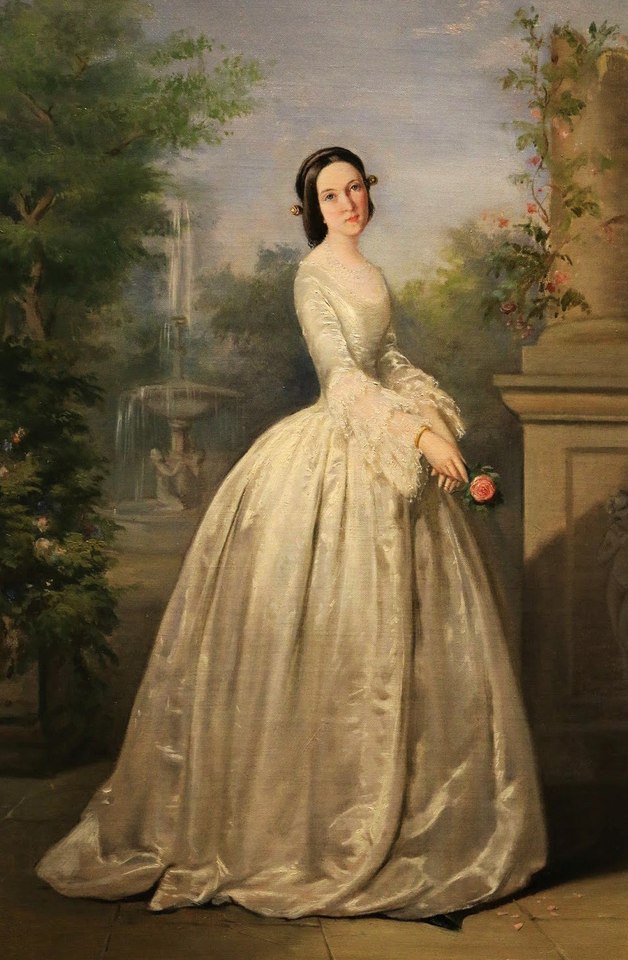
Princess Tatiana Alexandrovna Yusupova.
#tatiana alexandrovna yussupova#princess yussupova#yussupov#Russian nobility#russian aristocrats#imperial russia
37 notes
·
View notes
Photo
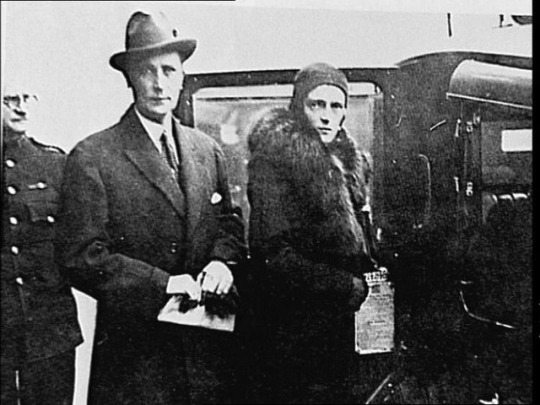
Felix and Irina Yussupov in Paris.
The Yussopov family was one of the richest in Russia before the Revolution and they managed to stay very wealthy after
56 notes
·
View notes
Photo
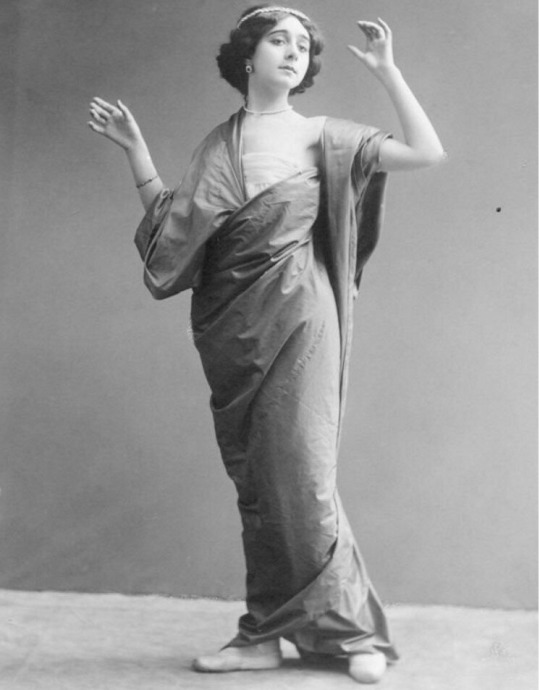
Vera Karalli (1889 – 1972) was a Russian ballet dancer, choreographer and silent film actress during the early years of the 20th century. In 1914 Karalli embarked on a successful acting career, and became one of Russia's first celebrated film actresses.
Karalli was a mistress of Grand Duke Dmitri Pavlovich of Russia and was reportedly also a co-conspirator in the December 1916 murder of Grigori Rasputin. She was allegedly one of two women present in the palace of Felix Yussupov on the night of Rasputin's murder.
42 notes
·
View notes
Text

Grand Duchess Olga Nikolaevna Romanova of Russia at Tsarskoe Selo in 1913.
At the time of this photo she was 18,Olga died at aged 23. During that era ~ whether it was arranged or for love,females married young.If she did she could have escaped the horror that was to come.Her own mother,the Empress Alexandra Feodorovna of Russia was considered old at aged 22 when she married.
Her marriage prospects
•Prince Ioann Konstantinovich Romanov of Russia fell in love with Olga. When he was 16, he attended Alexei's christening in 1904 and met the 9-year-old Olga. He reflected that “I was so enraptured by her I can’t even describe it. It was like a wildfire fanned by the wind. Her hair was waving, her eyes were sparkling, well, I can’t even begin to describe it!!”. In 1908, he traveled to the Crimea "only out of hunger to see Olga." He admitted his feelings to Olga's parents, but they rejected him. He told his father, "They won't let me marry Olga Nikolaevna."
•In 1911, there were rumors that Olga would marry George, Crown Prince of Serbia or Prince Boris of Bulgaria.The article claimed that Nicholas intended to make his four daughters the "Queens of the Balkans" to keep the Balkan states faithful to Russia.
•After the Coronation of King George V of the United Kingdom there was speculation that either Olga or Tatiana would marry Prince Edward of Wales.
•There were rumors that Olga and her first cousin once removed Grand Duke Dmitri Pavlovich Romanov of Russia were romantically involved. As an orphan, Dmitri was very close to Olga's parents, which provoked more speculation that he would marry Olga. Arthur Cherep-Spiridovich wrote, “Such was the Emperor’s affection for him that all the entourage already saw in him the future fiancé of one of the grand duchesses.Alexandra Bogdanova, the wife of a general and hostess of a monarchist salon, wrote in her diary on 7 June 1912 that Olga had been betrothed the previous night to Grand Duke.The Washington Post reported that Olga had refused Prince Adalbert because "she had given her heart to her cousin Grand Duke Dmitri Paulovitch."In August 1912, Meriel Buchanan, the British ambassador's daughter, wrote in her diary, "I heard a rumour yesterday that a certain person is going to marry the Emperor’s eldest daughter. I can’t quite believe it considering all the high and mighty people who are panting to marry her. Of course she may have a coup de foudre for him and insist on having her own way.” In his book The Rasputin File, Edvard Radzinsky speculates that the betrothal was broken off due to Dmitri's dislike for Grigori Rasputin, his association with Felix Yussupov and rumors that Dmitri was bisexual.However, no other sources mention an official betrothal to Dmitri Pavlovich.
•Before World War I, there was some discussion of a marriage between Olga and Prince Carol of Romania. In 1914, Foreign Minister Sergey Sazonov advocated the match because he wanted to ensure that the Romanian royal family would support Russia in case of a future conflict. Nicholas and Alexandra saw the benefits of the match, but they insisted that “the grand duchess’s marriage … should take place only as the result of a much closer acquaintance between the young people and on the absolute condition of their daughter’s voluntary agreement to it."In March 1914, Crown Prince Ferdinand of Romania, Crown Princess Marie of Romania, and Prince Carol of Romania visited the Romanovs in St. Petersburg. Despite going on walks and dinners with each other, Olga and Carol seemed uninterested in each other. During a visit to Romania in the spring of 1914, Olga and Carol were uninterested in each other and did not speak to each other. Crown Princess Marie of Romania, noted that Carol was "not enamored of Olga's broad, plain face and brusque manner." She judged that Olga's face "was too broad, her cheekbones too high," and she told her mother that all of the grand duchesses "were not found very pretty." Marthe Bibesco, who was with the Romanian party, heard a rumor that the grand duchesses had "decided... to make themselves as ugly as they could.... so that Carol should not fall in love with any of them.". The plans were, in any event, put on hold upon the outbreak of war in 1914.
•Olga told Pierre Gilliard that she wanted to marry a Russian and remain in her own country. She said her parents would not force her to marry anyone she could not like.
•In 1913, Duchess Marie of Mecklenburg-Schwerin asked Alexandra about a potential marriage between the 18-year-old Olga and her own 38-year-old son, Grand Duke Boris Vladimirovich of Russia. Alexandra was horrified, because "the idea of Boris is too unsympathetic." She refused to allow "a pure, fresh girl" to marry "a well-used, half worn out, blasé young man" and "live in a house in which many a woman has shared his life."
13 notes
·
View notes
Text

Princess Zenaida Youssoupoff in her famous salon. As you can see from photographs, aside from personal touches, the room has survived largely intact.

222 notes
·
View notes
Photo
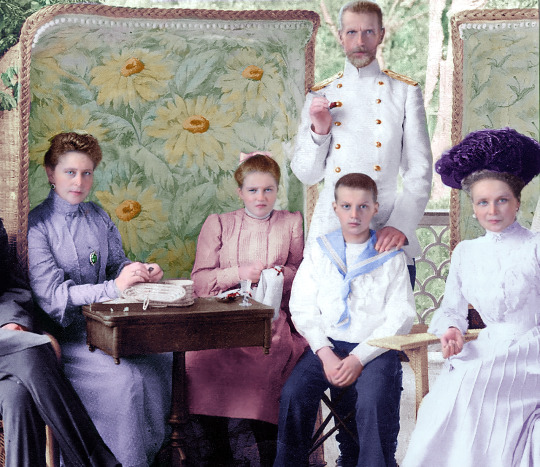
Grand Duchess Elizabeth Feodorovna and Grand Duke Sergei Alexandrovich of Russia with their wards Grand Duchess Maria Pavlovna and Grand Duke Dmitri Pavlovich and their friend Princess Zinaida Yussupov, ca. 1903.
#Grand Duchess Elizabeth Feodorovna#Grand Duke Sergei Alexandrovich#Grand Duchess Maria Pavlovna#Grand Duke Dmitri Pavlovich#Princess Zinaida Yussupov#Romanovs#Imperial Family#imperial russia#Princess Elizabeth of Hesse#illinskoe
46 notes
·
View notes
Text
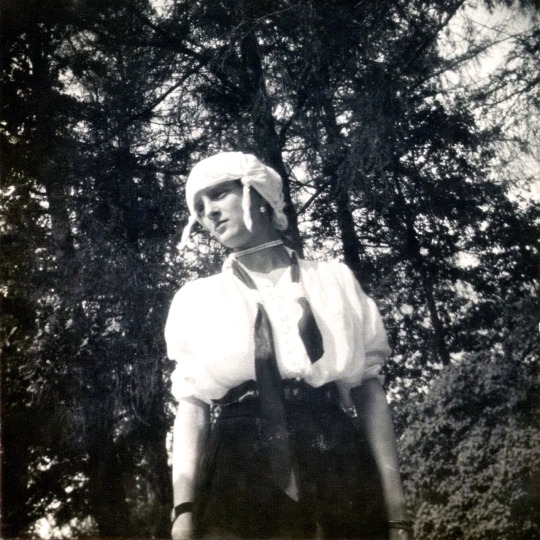
Princess Irina Alexandrovna, daughter of Grand Duchess Xenia, sister of Nicholas II.
(source: 📷)
30 notes
·
View notes
Text
idk if someone has the same problem as me, but I couldn't buy Felix Yusupov's book, Lost Splendor, because it doesn't ship to Brazil. so, digging a little bit around the Alexander Palace site, I found a full archive of the book;
if I have to remove this post, I'll do it. since it's actually on the Alexander Palace site, however, I think I'm allowed to share this link (I mean, it's a public website lol)
I'm aware a lot of people know about that, but like, I'm just posting it to increase awareness JDKAJDNDJS
anyway, the link of the archive is embed to this post.
#whoops forgot to add tags#felix yusupov#russian history#romanov family#yusupov#i dont plan on posting more stuff // i dont like posting here that often
4 notes
·
View notes
Link
This book will concern itself least of all with those unrelated psychological researches which are now so often substituted for social and historical analysis. Foremost in our field of vision will stand the great, moving forces of history, which are super-personal in character. Monarchy is one of them. But all these forces operate through people. And monarchy is by its very principle bound up with the personal. This in itself justifies an interest in the personality of that monarch whom the process of social development brought face to face with a revolution. Moreover, we hope to show in what follows, partially at least, just where in a personality the strictly personal ends – often much sooner than we think – and how frequently the “distinguishing traits” of a person are merely individual scratches made by a higher law of development.
Nicholas II inherited from his ancestors not only a giant empire, but also a revolution. And they did not bequeath him one quality which would have made him capable of governing an empire or even a province or a county. To that historic flood which was rolling its billows each one closer to the gates of his palace, the last Romanov opposed only a dumb indifference. It seemed as though between his consciousness and his epoch there stood some transparent but absolutely impenetrable medium.
People surrounding the tzar often recalled after the revolution that in the most tragic moments of his reigns – at the time of the surrender of Port Arthur and the sinking of the fleet at Tsushima, and ten years later at the time of the retreat of the Russian troops from Galicia, and then two years later during the days preceding his abdication when all those around him were depressed, alarmed, shaken – Nicholas alone preserved his tranquillity. He would inquire as usual how many versts he had covered in his journeys about Russia, would recall episodes of hunting expeditions in the past, anecdotes of official meetings, would interest himself generally in the little rubbish of the day’s doings, while thunders roared over him and lightnings flashed. “What is this?” asked one of his attendant generals, “a gigantic, almost unbelievable self-restraint, the product of breeding, of a belief in the divine predetermination of events? Or is it inadequate consciousness?” The answer is more than half included in the question. The so-called “breeding” of the tzar, his ability to control himself in the most extraordinary circumstances, cannot be explained by a mere external training; its essence was an inner indifference, a poverty of spiritual forces, a weakness of the impulses of the will. That mask of indifference which was called breeding in certain circles, was a natural part of Nicholas at birth.
The tzar’s diary is the best of all testimony. From day to day and from year to year drags along upon its pages the depressing record of spiritual emptiness. “Walked long and killed two crows. Drank tea by daylight.” Promenades on foot, rides in a boat. And then again crows, and again tea. All on the borderline of physiology. Recollections of church ceremonies are jotted down in the same tone as a drinking party.
In the days preceding the opening of the State Duma, when the whole country was shaking with convulsions, Nicholas wrote: “April 14. Took a walk in a thin shirt and took up paddling again. Had tea in a balcony. Stana dined and took a ride with us. Read.” Not a word as to the subject of his reading. Some sentimental English romance? Or a report from the Police Department? “April 15: Accepted Witte’s resignation. Marie and Dmitri to dinner. Drove them home to the palace.”
On the day of the decision to dissolve the Duma, when the court as well as the liberal circles were going through a paroxysm of fright, the tzar wrote in his diary: “July 7. Friday. Very busy morning. Half hour late to breakfast with the officers ... A storm came up and it was very muggy. We walked together. Received Goremykin. Signed a decree dissolving the Duma! Dined with Olga and Petia. Read all evening.” An exclamation point after the coming dissolution of the Duma is the highest expression of his emotions. The deputies of the dispersed Duma summoned the people to refuse to pay taxes. A series of military uprisings followed: in Sveaborg, Kronstadt, on ships, in army units. The revolutionary terror against high officials was renewed on an unheard-of scale. The tzar writes: “July 9. Sunday. It has happened! The Duma was closed today. At breakfast after Mass long faces were noticeable among many ... The weather was fine. On our walk we met Uncle Misha who came over yesterday from Gatchina. Was quietly busy until dinner and all evening. Went padding in a canoe.” It was in a canoe he went paddling – that is told. But with what he was busy all evening is not indicated. So it was always.
And further in those same fatal days: “July 14. Got dressed and rode a bicycle to the bathing beach and bathed enjoyably in the sea.” “July 15. Bathed twice. It was very hot. Only us two at dinner. A storm passed over.” “July 19. Bathed in the morning. Received at the farm. Uncle Vladimir and Chagin lunched with us.” An insurrection and explosions of dynamite are barely touched upon with a single phrase, “Pretty doings!” – astonishing in its imperturbable indifference, which never rose to conscious cynicism.
“At 9:30 in the morning we rode out to the Caspian regiment ... walked for a long time. The weather was wonderful. Bathed in the sea. After tea received Lvov and Guchkov.” Not a word of the fact that this unexpected reception of the two liberals was brought about by the attempt of Stolypin to include opposition leaders in his ministry. Prince Lvov, the future head of the Provisional Government, said of that reception at the time: “I expected to see the sovereign stricken with grief, but instead of that there came out to meet me a jolly sprightly fellow in a raspberry-coloured shirt.” The tzar’s outlook was not broader than that of a minor police official – with this difference, that the latter would have a better knowledge of reality and be less burdened with superstitions. The sole paper which Nicholas read for years, and from which he derived his ideas, was a weekly published on state revenue by Prince Meshchersky, a vile, bribed journalist of the reactionary bureaucratic clique, despised even in his own circle. The tzar kept his outlook unchanged through two wars and two revolutions. Between his consciousness and events stood always that impenetrable medium – indifference. Nicholas was called, not without foundation, a fatalist. It is only necessary to add that his fatalism was the exact opposite of an active belief in his “star.” Nicholas indeed considered himself unlucky. His fatalism was only a form of passive self-defence against historic evolution, and went hand in hand with an arbitrariness, trivial in psychological motivation, but monstrous in its consequences.
“I wish it and therefore it must be —,” writes Count Witte. “That motto appeared in all the activities of this weak ruler, who only through weakness did all the things which characterised his reign – a wholesale shedding of more or less innocent blood, for the most part without aim.”
Nicholas is sometimes compared with his half-crazy great-great-grandfather Paul, who was strangled by a camarilla acting in agreement with his own son, Alexander “the Blessed.” These two Romanovs were actually alike in their distrust of everybody due to a distrust of themselves, their touchiness as of omnipotent nobodies, their feeling of abnegation, their consciousness, as you might say, of being crowned pariahs. But Paul was incomparably more colourful; there was an element of fancy in his rantings, however irresponsible. In his descendant everything was dim; there was not one sharp trait.
Nicholas was not only unstable, but treacherous. Flatterers called him a charmer, bewitcher, because of his gentle way with the courtiers. But the tzar reserved his special caresses for just those officials whom he had decided to dismiss. Charmed beyond measure at a reception, the minister would go home and find a letter requesting his resignation. That was a kind of revenge on the tzar’s part for his own nonentity.
Nicholas recoiled in hostility before everything gifted and significant. He felt at ease only among completely mediocre and brainless people, saintly fakers, holy men, to whom he did not have to look up. He had his amour propre, indeed it was rather keen. But it was not active, not possessed of a grain of initiative, enviously defensive. He selected his ministers on a principle of continual deterioration. Men of brain and character he summoned only in extreme situations when there was no other way out, just as we call in a surgeon to save our lives. It was so with Witte, and afterwards with Stolypin. The tzar treated both with ill-concealed hostility. As soon as the crisis had passed, he hastened to part with these counsellors who were too tall for him. This selection operated so systematically that the president of the last Duma, Rodzianko, on the 7th of January 1917, with the revolution already knocking at the doors, ventured to say to the tzar: “Your Majesty, there is not one reliable or honest man left around you; all the best men have been removed or have retired. There remain only those of ill repute.”
All the efforts of the liberal bourgeoisie to find a common language with the court came to nothing. The tireless and noisy Rodzianko tried to shake up the tzar with his reports, but in vain. The latter gave no answer either to argument or to impudence, but quietly made ready to dissolve the Duma. Grand Duke Dmitri, a former favourite of the tzar, and future accomplice in the murder of Rasputin, complained to his colleague, Prince Yussupov, that the tzar at headquarters was becoming every day more indifferent to everything around him. In Dmitri’s opinion the tzar was being fed some kind of dope which had a benumbing action upon his spiritual faculties. “Rumours went round,” writes the liberal historian Miliukov, “that this condition of mental and moral apathy was sustained in the tzar by an increased use of alcohol.” This was all fancy or exaggeration. The tzar had no need of narcotics: the fatal “dope” was in his blood. Its symptoms merely seemed especially striking on the background of those great events of war and domestic crisis which led up to the revolution. Rasputin, who was a psychologist, said briefly of the tzar that he “lacked insides.”
This dim, equable and “well-bred” man was cruel – not with the active cruelty of Ivan the Terrible or of Peter, in the pursuit of historic aims – What had Nicholas the Second in common with them? – but with the cowardly cruelty of the late born, frightened at his own doom. At the very dawn of his reign Nicholas praised the Phanagoritsy regiment as “fine fellows” for shooting down workers. He always “read with satisfaction” how they flogged with whips the bob-haired girl-students, or cracked the heads of defenceless people during Jewish pogroms. This crowned black sheep gravitated with all his soul to the very dregs of society, the Black Hundred hooligans. He not only paid them generously from the state treasury, but loved to chat with them about their exploits, and would pardon them when they accidentally got mixed up in ��the murder of an opposition deputy. Witte, who stood at the head of the government during the putting down of the first revolution, has written in his memoirs: “When news of the useless cruel antics of the chiefs of those detachments reached the sovereign, they met with his approval, or in any case his defence.” In answer to the demand of the governor-general of the Baltic States that he stop a certain lieutenant-captain, Richter, who was “executing on his own authority and without trial non-resistant persons,” the tzar wrote on the report: “Ah, what a fine fellow!” Such encouragements are innumerable. This “charmer,” without will, without aim, without imagination, was more awful than all the tyrants of ancient and modern history.
The tzar was mightily under the influence of the tzarina, an influence which increased with the years and the difficulties. Together they constituted a kind of unit – and that combination shows already to what an extent the personal, under pressure of circumstances, is supplemented by the group. But first we must speak of the tzarina herself.
Maurice Paléologue, the French ambassador at Petrograd during the war, a refined psychologist for French academicians and janitresses, offers a meticulously licked portrait of the last tzarina: “Moral restlessness, a chronic sadness, infinite longing, intermittent ups and downs of strength, anguishing thoughts of the invisible other world, superstitions – are not all these traits, so clearly apparent in the personality of the empress, the characteristic traits of the Russian people?” Strange as it may seem, there is in this saccharine lie just a grain of truth. The Russian satirist Saltykov, with some justification, called the ministers and governors from among the Baltic barons “Germans with a Russian soul.” It is indubitable that aliens, in no way connected with the people, developed the most pure culture of the “genuine Russian” administrator.
But why did the people repay with such open hatred a tzarina who, in the words of Paléologue, had so completely assimilated their soul? The answer is simple. In order to justify her new situation, this German woman adopted with a kind of cold fury all the traditions and nuances of Russian mediaevalism, the most meagre and crude of all mediaevalisms, in that very period when the people were making mighty efforts to free themselves from it. This Hessian princess was literally possessed by the demon of autocracy. Having risen from her rural corner to the heights of Byzantine despotism, she would not for anything take a step down. In the orthodox religion she found a mysticism and a magic adapted to her new lot. She believed the more inflexibly in her vocation, the more naked became the foulness of the old régime. With a strong character and a gift for dry and hard exaltations, the tzarina supplemented the weak-willed tzar, ruling over him.
On March 17, 1916, a year before the revolution, when the tortured country was already writhing in the grip of defeat and ruin, the tzarina wrote to her husband at military headquarters: “You must not give indulgences, a responsible ministry, etc. ... or anything that they want. This must be your war and your peace, and the honour yours and our fatherland’s, and not by any means the Duma’s. They have not the right to say a single word in these matters.” This was at any rate a thoroughgoing programme. And it was in just this way that she always had the whip hand over the continually vacillating tzar.
After Nicholas’ departure to the army in the capacity of fictitious commander-in-chief, the tzarina began openly to take charge of internal affairs. The ministers came to her with reports as to a regent. She entered into a conspiracy with a small camarilla against the Duma, against the ministers, against the staff-generals, against the whole world – to some extent indeed against the tzar. On December 6, 1916, the tzarina wrote to the tzar: “... Once you have said that you want to keep Protopopov, how does he (Premier Trepov) go against you? Bring down your first on the table. Don’t yield. Be the boss. Obey your firm little wife and our Friend. Believe in us.” Again three days late: “You know you are right. Carry your head high. Command Trepov to work with him ... Strike your fist on the table.” Those phrases sound as though they were made up, but they are taken from authentic letters. Besides, you cannot make up things like that.
On December 13 the tzarina suggested to the tzar: “Anything but this responsible ministry about which everybody has gone crazy. Everything is getting quiet and better, but people want to feel your hand. How long they have been saying to me, for whole years, the same thing: ’Russia loves to feel the whip.’ That is their nature!” This orthodox Hessian, with a Windsor upbringing and a Byzantine crown on her head, not only “incarnates” the Russian soul, but also organically despises it. Their nature demands the whip – writes the Russian tzarina to the Russian tzar about the Russian people, just two months and a half before the monarchy tips over into the abyss.
In contrast to her force of character, the intellectual force of the tzarina is not higher, but rather lower than her husband’s. Even more than he, she craves the society of simpletons. The close and long-lasting friendship of the tzar and tzarina with their lady-in-waiting Vyrubova gives a measure of the spiritual stature of this autocratic pair. Vyrubova has described herself as a fool, and this is not modesty. Witte, to whom one cannot deny an accurate eye, characterised her as “a most commonplace, stupid, Petersburg young lady, homely as a bubble in the biscuit dough.” In the society of this person, with whom elderly officials, ambassadors and financiers obsequiously flirted, and who had just enough brains not to forget about her own pockets, the tzar and tzarina would pass many hours, consulting her about affairs, corresponding with her and about her. She was more influential than the State Duma, and even than the ministry.
But Vyrubova herself was only an instrument of “The Friend,” whose authority superseded all three. “... This is my private opinion,” writes the tzarina to the tzar, “I will find out what our Friend thinks.” The opinion of the “Friend” is not private, it decides. “... I am firm,” insists the tzarina a few weeks later, “but listen to me, i.e. this means our Friend, and trust in everything ... I suffer for you as for a gentle soft-hearted child – who needs guidance, but listens to bad counsellors, while a man sent by God is telling him what he should do.”
The Friend sent by God was Gregory Rasputin.
“... The prayers and the help of our Friend – then all will be well.”
“If we did not have Him, all would have been over long ago. I am absolutely convinced of that.”
Throughout the whole reign of Nicholas and Alexandra soothsayers and hysterics were imported for the court not only from all over Russia, but from other countries. Special official purveyors arose, who would gather around the momentary oracle, forming a powerful Upper Chamber attached to the monarch. There was no lack of bigoted old women with the title of countess, nor of functionaries weary of doing nothing, nor of financiers who had entire ministries in their hire. With a jealous eye on the unchartered competition of mesmerists and sorcerers, the high priesthood of the Orthodox Church would hasten to pry their way into the holy of holies of the intrigue. Witte called this ruling circle, against which he himself twice stubbed his toe, “the leprous court camarilla.”
The more isolated the dynasty became, and the more unsheltered the autocrat felt, the more he needed some help from the other world. Certain savages, in order to bring good weather, wave in the air a shingle on a string. The tzar and tzarina used shingles for the greatest variety of purposes. In the tzar’s train there was a whole chapel full of large and small images, and all sorts of fetiches, which were brought to bear, first against the Japanese, then against the German artillery.
The level of the court circle really had not changed much from generation to generation. Under Alexander II, called the “Liberator,” the grand dukes had sincerely believed in house spirits and witches. Under Alexander III it was no better, only quieter. The “leprous camarilla” had existed always, changed only its personnel and its method. Nicholas II did not create, but inherited from his ancestors, this court atmosphere of savage mediaevalism. But the country during these same decades had been changing, its problems growing more complex, its culture rising to a higher level. The court circle was thus left far behind.
Although the monarchy did under compulsion make concessions to the new forces, nevertheless inwardly it completely failed to become modernised. On the contrary it withdrew into itself. Its spirit of mediaevalism thickened under the pressure of hostility and fear, until it acquired the character of a disgusting nightmare overhanging the country.
Towards November 1905 – that is, at the most critical moment of the first revolution – the tzar writes in his diary: “We got acquainted with a man of God, Gregory, from the Tobolsk province.” That was Rasputin – a Siberian peasant with a bald scar on his head, the result of a beating for horse-stealing. Put forward at an appropriate moment, this “Man of God” soon found official helpers – or rather they found him – and thus was formed a new ruling class which got a firm hold of the tzarina, and through her of the tzar.
From the winter of 1913-14 it was openly said in Petersburg society that all high appointments, posts and contracts depended upon the Rasputin clique. The “Elder” himself gradually turned into a state institution. He was carefully guarded, and no less carefully sought after by the competing ministers. Spies of the Police Department kept a diary of his life by hours, and did not fail to report how on a visit to his home village of Pokrovsky he got into a drunken and bloody fight with his own father on the street. On the same day that this happened – September 9, 1915 – Rasputin sent two friendly telegrams, one to Tzarskoe Selo, to the tzarina, the other to headquarters to the tzar. In epic language the police spies registered from day to day the revels of the Friend. “He returned today 5 o’clock in the morning completely drunk.” “On the night of the 25-26th the actress V. spent the night with Rasputin.” “He arrived with Princess D. (the wife of a gentleman of the bedchamber of the Tzar’s court) at the Hotel Astoria.”...And right beside this: “Came home from Tzarskoe Selo about 11 o’clock in the evening.” “Rasputin came home with Princess Sh- very drunk and together they went out immediately.” In the morning or evening of the following day a trip to Tzarskoe Selo. To a sympathetic question from the spy as to why the Elder was thoughtful, the answer came: “Can’t decide whether to convoke the Duma or not.” And then again: “He came home at 5 in the morning pretty drunk.” Thus for months and years the melody was played on three keys: “Pretty drunk,” “Very drunk,” and “Completely drunk.” These communications of state importance were brought together and countersigned by the general of gendarmes, Gorbachev.
The bloom of Raputin’s influence lasted six years, the last years of the monarchy. “His life in Petrograd,” says Prince Yussupov, who participated to some extent in that life, and afterward killed Rasputin, “became a continual revel, the durnken debauch of a galley slave who had come into an unexpected fortune.” “I had at my disposition,” wrote the president of the Duma, Rodzianko, “a whole mass of letters from mothers whose daughters had been dishonoured by this insolent rake.” Nevertheless the Petrograd metropolitan, Pitirim, owed his position to Rasputin, as also the almost illiterate Archbishop Varnava. The Procuror of the Holy Synod, Sabler, was long sustained by Rasputin; and Premier Kokovtsev was removed at his wish, having refused to receive the “Elder.” Rasputin appointed Stürmer President of the Council of Ministers, Protopopov Minister of the Interior, the new Procuror of the Synod, Raev, and many others. The ambassador of the French republic, Paléologue, sought an interview with Rasputin, embraced him and cried, “Voilà, un véritable illuminé!” hoping in this way to win the heart of the tzarina to the cause of France. The Jew Simanovich, financial agent of the “Elder,” himself under the eye of the Secret Police as a nightclub gambler and usurer – introduced into the Ministry of Justice through Rasputin the completely dishonest creature Dobrovolsky.
“Keep by you the little list,” writes the tzarina to the tzar, in regard to new appointments. “Our friend has asked that you talk all this over with Protopopov.” Two days later: “Our friend says that Stürmer may remain a few days longer as President of the Council of Ministers.” And again: “Protopopov venerates our friend and will be blessed.”
On one of those days when the police spies were counting up the number of bottles and women, the tzarina grieved in a letter to the tzar: “They accuse Rasputin of kissing women, etc. Read the apostles; they kissed everybody as a form of greeting.” This reference to the apostles would hardly convince the police spies. In another letter the tzarina goes still farther. “During vespers I thought so much about our friend,” she writes, “how the Scribes and Pharisees are persecuting Christ pretending that they are so perfect ... yes, in truth no man is a prophet in his own country.”
The comparison of Rasputin and Christ was customary in that circle, and by no means accidental. The alarm of the royal couple before the menacing forces of history was too sharp to be satisfied with an impersonal God and the futile shadow of a Biblical Christ. They needed a second coming of “the Son of Man.” In Rasputin the rejected and agonising monarchy found a Christ in its own image.
“If there had been no Rasputin,” said Senator Tagantsev, a man of the old régime, “it would have been necessary to invent one.” There is a good deal more in these words than their author imagined. If by the word hooliganism we understand the extreme expression of those anti-social parasite elements at the bottom of society, we may define Rasputinism as a crowned hooliganism at its very top.
1 note
·
View note
Photo

Rasputin
His name was Grigori Efimovich Rasputin and he is one of the most enigmatic men in modern history. Was he a misunderstood holy man with strange powers to heal - or was he a scheming sinner who manipulated the suffering of others?
Rasputin was born in the Tyumen district of Siberia, far away from the glittering salons in the Imperial Capital of St. Petersburg. Even today he is a shadowy and mysterious character; a person of contradictory personality traits. While he was alive, witnesses, including doctors and skeptics, concluded he possessed some inexplicable power over the Tsarevich and his deadly episodes of bleeding. This mysterious ability to heal her son was enough to convince Alexandra that Rasputin, whatever people said of him, must have been sent by God. In her mind he was he the answer to her fervent prayers for God to save her son. It was impossible for her to believe that he could have been a wolf in sheep’s clothing. His influence over politics has been greatly exaggerated. Rasputin was a convenient scapegoat for those who wanted to attack the Tsar’s appointments and decisions, but who wouldn’t confront Nicholas directly.
Rasputin was close to the Tsaritsa’s closest friend, Anya Vyrubova. Her devotion to him was absolute, which was reinforced after a terrible derailment of the train from Tsarskoe Selo to Petersburg in which Anna was almost killed. Although she survived the accident Anna’s condition was so bad her doctors despaired of saving her life; her body was crushed and mangled. Rasputin came to her bedside, stood over Anna as she lay near death. He reached out and held her hand. Dripping with sweat, intensely focused, Rasputin repeated the words, “Annushka, Annushka, rise!”. The drama of the moment was incredible. Anna suddenly awoke from her coma, opened her eyes and tried to rise from her bed. It was a miracle. As Rasputin staggered into the next room, he spoke, prophetically saying that although she would live, for the rest of her life Anna would be a cripple. So it came to be.
Rasputin tried to ingratiate himself with other members of the Romanov family, but most of them would have nothing to do with him. Olga, Nicholas sister, resented Rasputin’s prying into her private life and rebuffed his offers of spiritual help in her marital problems.
A number of influential churchmen fell for Rasputin early in his ‘career’ as a holy man. Later, these supporters in the church hierarchy turned on him and attempted to send him away from St. Peterburg. Rasputin cunningly knew how to undermine his enemies in the church and soon had them exiled or in disgrace. A bishop or monk who opposed him might find them self suddenly sent to a remote monastery or far-away episcopal see. In government affairs Rasputin’s power was an illusion, although the Petersburg press crowed about his influence over important government appointments. Gossip claimed he had seduced the Empress, her daughters, and Anna Vyrubova as well. These rumors, which reached the highest circles of society where they were deliciously repeated by Alexandra’s foes, drove Nicholas to distraction. The remoteness and isolation of the Imperial Family made it possible for the general public to believe these crazy stories, but the aristocracy knew they were groundless. Still they derived pleasure from seeing Alexandra’s named dragged through the mud. Rasputin made the talk worse by flaunting the Imperial families gifts, letters and the telephone calls he received from Alexandra asking for his prayers. People believed he had an uncanny control over the Tsar and his wife. Rasputin enjoyed the celebrity status this reputation gave him.
The story of Rasputin’s demise is well known. One night in December 1916, Rasputin was invited by Prince Felix Felixovich Yussupov to visit his palace on the Moika Canal. The pretext was the opportunity for Rasputin to meet Felix’s wife, Irina, who was a great beauty and niece of the Tsar. Rasputin wanted to meet Irina and was flattered by Felix’s attention. Felix claims he had been nurturing a relationship with Rasputin for a number of years before the invitation, although this relationship has never been fully explained. Felix always portrayed his murder of Rasputin as a political act to save Russia.
Certainly, Felix had never shown any patriotic leanings before, so his murder of Rasputin is hard to explain from a political standpoint. It may have been there was some other, more personal, reason for Felix’s desire to get rid of him. Besides Felix, who was the mastermind of the plot, the Tsar’s first cousin and ward Grand Duke Dmitri Pavlovich Romanov, and a member of the Imperial Duma, Vladimir Mitrofanovich Purishkevich, were also involved in Rasputin’s killing.
10 notes
·
View notes